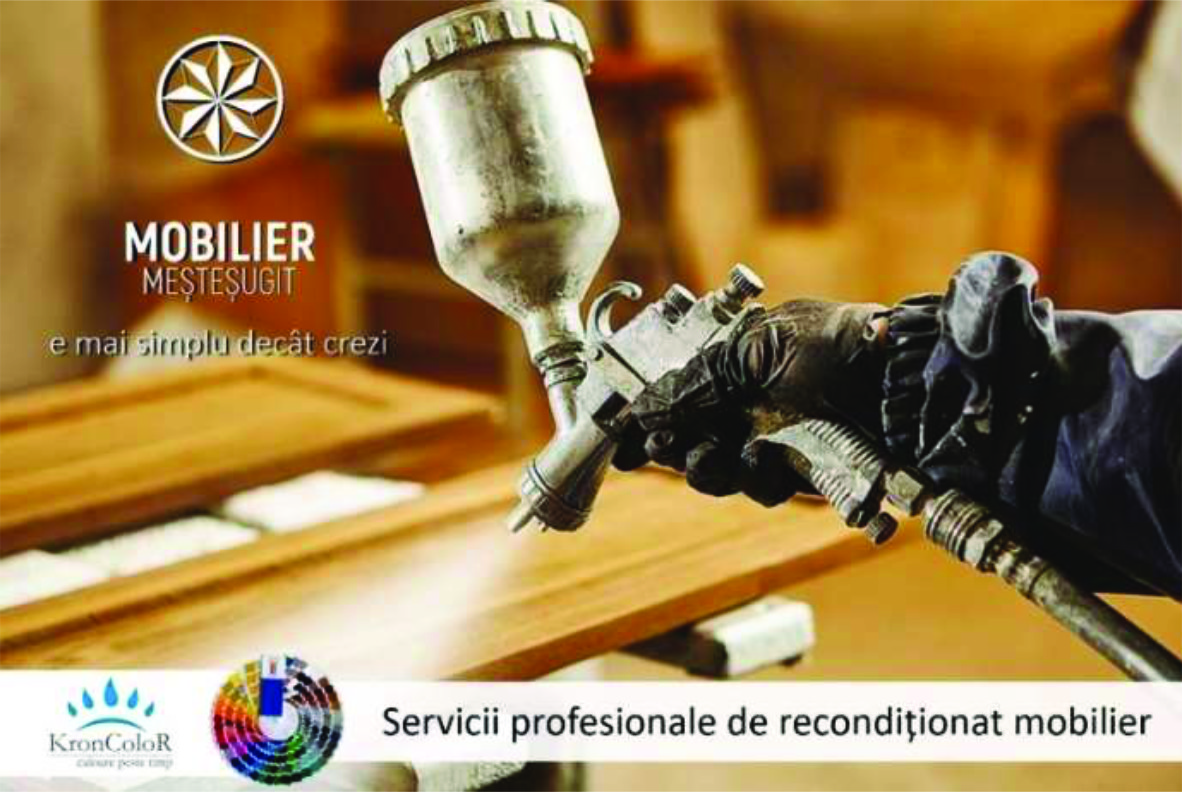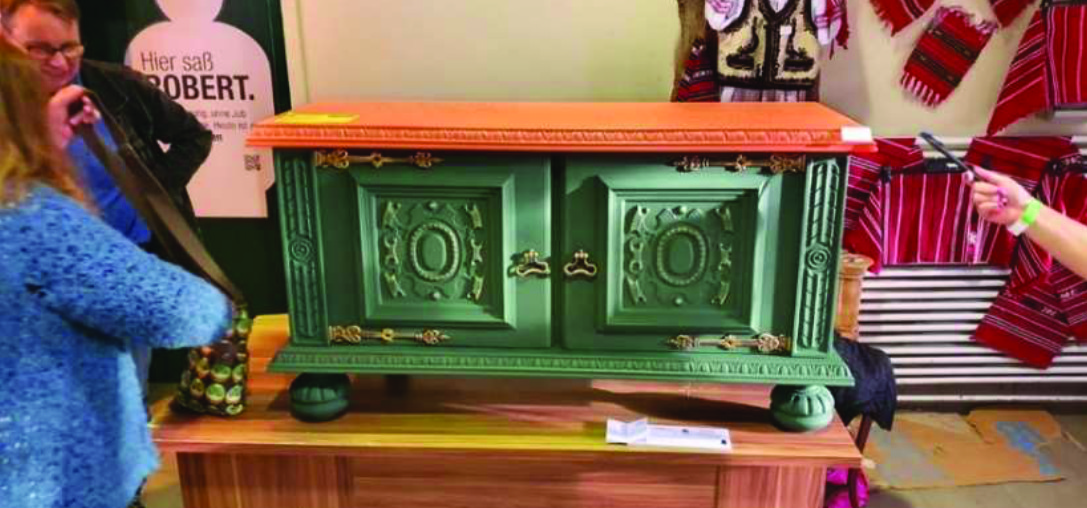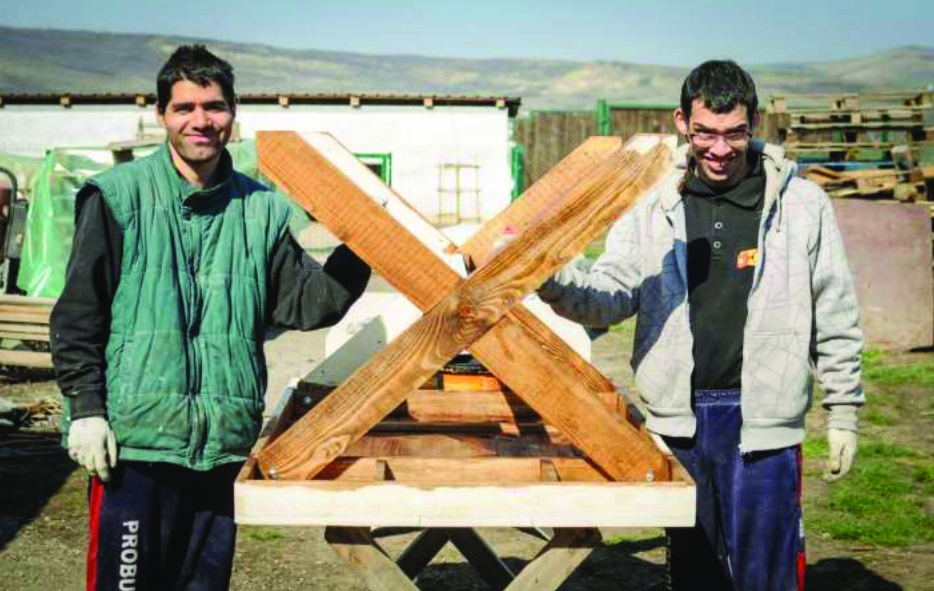Furniture Reconditioning in Romania
The manufacture of furniture represents approximately 4-5% of the manufacturing industry in Romania. The potential for circularity in this sector mainly concerns the use of more sustainable materials and the application of circular design principles in the production phase, as well as the improvement of the management of furniture waste and in particular wood waste. At the same time, the circular economy concept also acknowledges the importance of resources dynamics, using, as much as possible, recycled materials found in the bioshphere, to help restore the natural resourcess, the biodiversity and ecosystems.
In September 2022, the Department of Sustainable Development within the Romanian Government published the National Strategy for Circular Economy¹, which presents an analysis of the main economic sectors and industries.
The document highlights that Romania is among the least performant European countries in terms of waste generation and the use of recycled materials. Moreover, on the criteria of resource productivity, which is one of the most important indicators of sustainable consumption and production, Romania registered the lowest score in EU in 2019. The European Commission concluded that the country has not made any progress in the last 10 years in terms of using circular secondary materials.
Even more concerning, in the period of 2009-2018, only 1,4-1,6% of the total workforce was hired in a circular economy related sector, in the recycling or repairing/ reuse field, much less than the European average. This also comes as a consequence of the fact that Romanians are reluctant towards waste minimization, preferring to replace products instead of repairing them, or not paying attention to greener solutions (eg. transport, energy, and so on).
In terms of sustainable development, the furniture industry faces specific challenges, such as the intensive exploitation of wood, which threatens the local ecosystem and the biodiversity, as well as the use of synthetic materials and harmful plastics to improve the properties of the products, leading to soil pollution. (National Strategy for Circular Economy, 2022)
Another issue concerns the level of knowledge among consumers,who often have little information on how to extend a product’s lifetime or choose the least harmful materials. Moreover, the use of low-quality materials and poor design of furniture limits the lifetime of furniture and the potential for a successful second life. Limited collection and underinvestment in the collection and logistics for furniture take-back, high costs of repair and refurbishment and weak demand for secondhand furniture are additional barriers to an improvement of this situation.
The implementation of circular design principles, a reduction in the use of synthetic materials, an increase of selective waste collection, investments in furniture return infrastructures and recycling technologies are some of the ways to tackle this problem and decrease the amount of furniture that ends up în a landfill. In addition, local furniture refurbishing services create new employment opportunities, as seen in the best practices below.
- How can employers in the furtniture sector help?
Through collaboration with educational institutions, including post-secondary trainings in woodworking or furniture construction, employers have the possibility to propose on-the-job trainings for their staff, thus contributing to the development of new skills.
At community level, more information and transparency of the process, from collection to recycling/utilization is needed, as well as the establishment of collection centers or points, which should be provided by local public authorities, in partnership with sanitation companies and other collectors that ensure the collection of used furniture.
In Romania, on the occasion of the Earth Day in 2023, between the 22-23rd of April, the first ever Upcycled Furniture Fair, ”NEW AND OLD WOOD”, was organised with the aim to promote an innovative model of social economy and zero waste².
Only 5 months into trying to organize the fair, the In Context Association of Art had managed to process over 500 kilos of wood, from chairs and tables, to desks and bedsides.
Best practices
1. “Mobilier Meșeșugit”3 – Production and Reconditionning
Mobilier Meșteșugit is a craft workshop that produces solid wood furniture for the home and garden. The company also offers professional services for refurbishing old furniture.
Established in Suceava as a work point within the Biosilva Association, it represents a social economy structure. All the products made in the furniture workshop are mostly made by hand, in limited or unique series, respecting the traditional techniques of wood processing, and the naturalness of the solid wood is what really emphasizes their value.

2. RECOREDI Association – a better future for vulnerable people/Social Enterprise for Insertion
Recoredi Association is an NGO that does recycling, reconditioning with chalk paint and reupholstering, with employees from
the social system. They also have a secondhand furniture store in France.

3. Zinnas Holtz
Zinnas Holtz is a social enterprise in Romania and grantee of the POCU „SuccES – Structuri de creștere a calității economiei sociale” project. A small team of four people provide upholstery services including free services for NGOs working with vulnerable populations⁴.
4. Emmaus Satu Mare
Based in the Northern part of the country, the Romanian branch of Emmaus is one of the main social enterprises in Romania focusing on work inclusion. The NGO offers social support services for postinstitutionalized young people, who are encouraged to learn, work and engage in economic activities that involve the collection and reconditioning of second-hand products such as furniture, crockery or toys⁵.
5. Recycl’Art
Recycl’Art is a furniture company located in Târgu-Mureș, co-founded by Roman Works Association. It is specialized in creating furniture and other objects from recycled wood and materials,while supporting the labour market inclusion of vulnerable people. The enterprise works with people who had histories of addictions, Roma persons, or persons from rural areas.
In partnership with other organizations, Recycl’Art provides accommodation to their workers. Moreover, teenagers with various mental health issues are invited daily around the workshop⁶.

Photo source: Recycl’Art
- Guvernul României (2022), Strategia națională privind economia circulară. Retrieved from https://dezvoltaredurabila.gov.ro/strategia-nationala-privind-economia-circulara-13409762
- Mobilier Meșteșugit. Despre noi, Retrieved from https://mobiliermestesugit.ro/despre-noi/
- Asociația Recoredi. Retrieved from https://www.facebook.com/profile.php?id=100066430520370.
- Tapițeriile Dragoș, Despre proiect, Retrieved from https://tapiteriidragos.ro/despre-proiect/
- RISE Romania, Emmaus Satu Mare – social enterprise for young people. Retrieved from https://shorturl.at/eintS.Radio România Cultural, (2023, April 24). Primul târg anual de mobilier din lemn recondiționat s-a deschis la Slănic Moldova în perioada 22-24 aprilie, Centrala Artelor In Context. Retrieved from https://rb.gy/5ev1i
- Recycl’Art’. About us. Retrieved from https://recycleart.ro/en/about-us/
Superscript OneSuperscript One¹ Secretariatul General al Guvernului (2022), Strategia națională privind economia circulară,
https://sgg.gov.ro/1/wp-content/uploads/2022/08/Strategia-economie-circulara_18.08.2022.pdf
² Radio România Cultural, 2023, Primul târg anual de mobilier din lemn recondiționat s-a deschis la Slănic Moldova în perioada
22-24 aprilie, Centrala Artelor In Context, https://rb.gy/5ev1i
³ https://www.mobiliermestesugit.ro
⁴ Zinnas Holtz, Despre proiect, https://tapiteriidragos.ro/
⁵ RISE Romania, Emmaus Satu Mare – social enterprise for young people, https://shorturl.at/eintS
⁶ Recycl’Art, About Us, https://shorturl.at/eguPV
